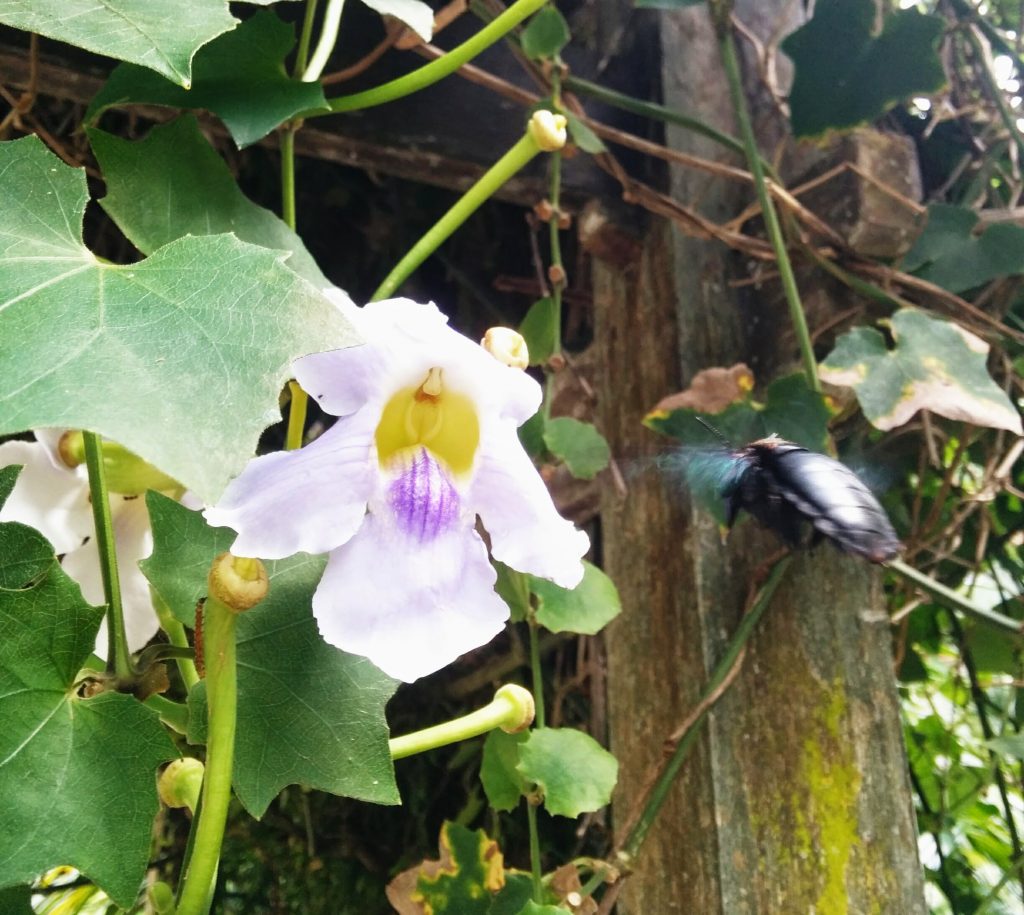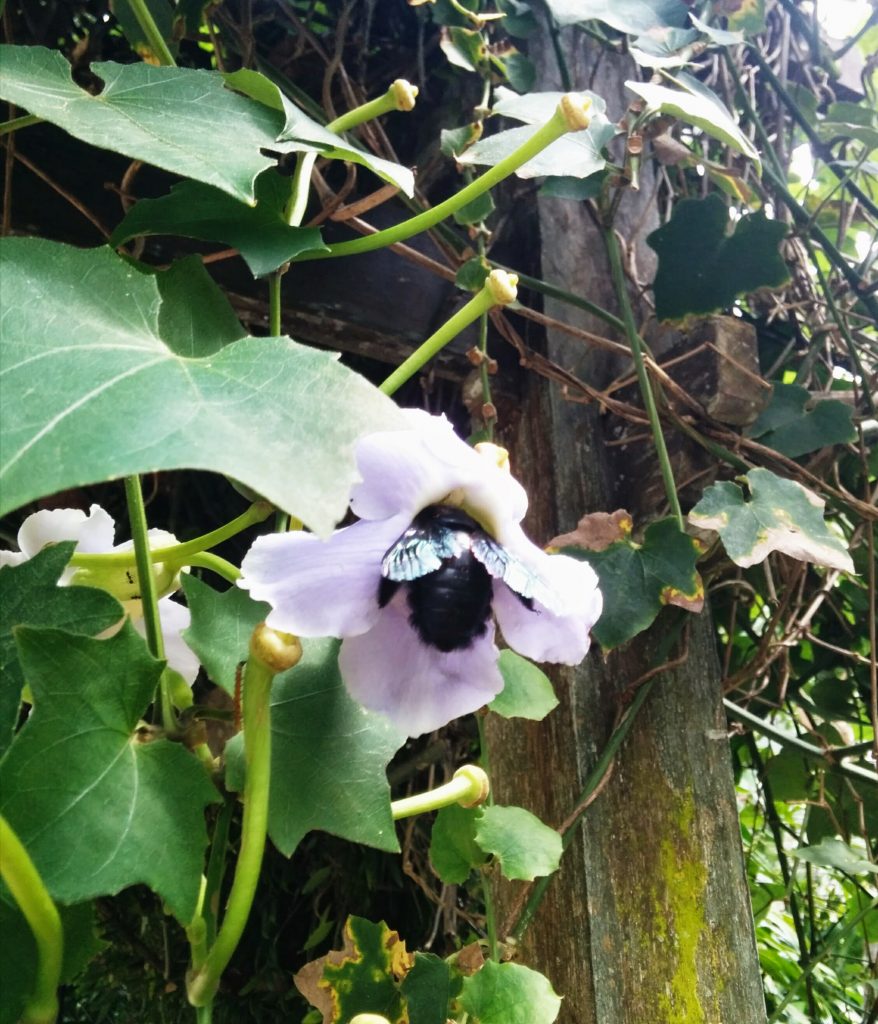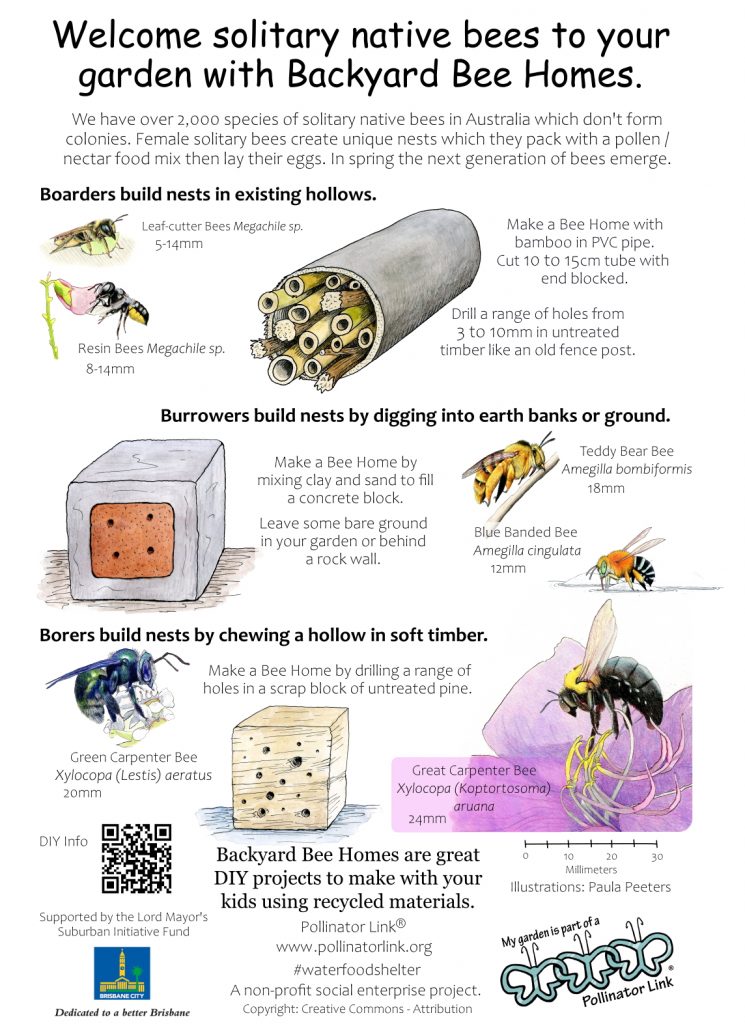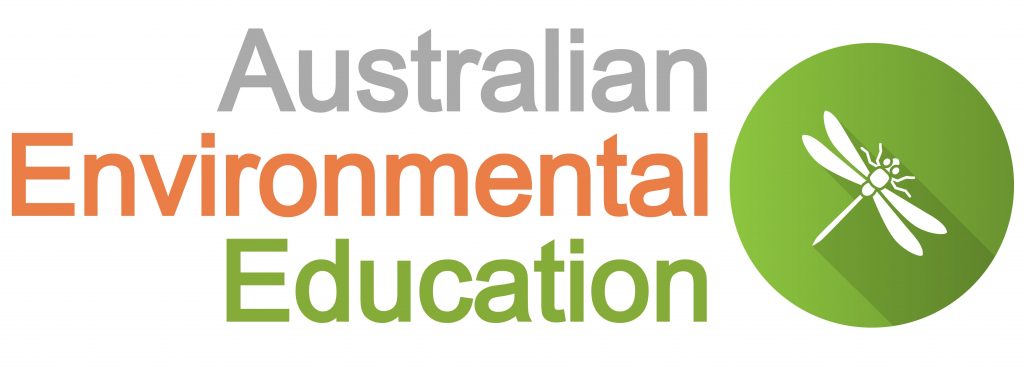Plants can’t move around to look for a mate to reproduce. Plants need pollinators to transfer the pollen, the male sex cells to the female reproductive parts of flowers. This process is called pollination, which leads to fertilisation. Good fertilisation helps plants develop seeds and fruit. The seeds and fruits that feed the countless animals in the world, including us.

Carpenter bee flying 
Carpenter bee finding pollen
Pollinators drive biodiversity, and over 75% of the world’s flowering plants rely on insect pollinators to reproduce. Most people are aware that bees are important pollinators and other insect pollinators include flies, beetles, moths, butterflies, wasps, ants. Birds and bats are some of the vertebrate animals that also pollinators. Pollinators provide these important ecosystem services in the natural landscapes as well as within agricultural/horticultural and urban environments.
Australian Pollinator Week acknowledges the important and unique insect pollinators found across Australia. It is a designated week in November during our southern spring when community, business and organisations can come together to raise awareness of the importance of pollinators and support their needs. The world is suffering from major pollinator declines, but you can also help make a difference by encouraging theses animals into your backyard and local area.
Use this great resource ‘Pollinator Insects Identification Tips’ by Wild Pollinator Count to help you identify pollinators around your home.
Make an insect hotel to attract more pollinators to your garden. Plant flowering plants and natives to attract more birds into your garden.


